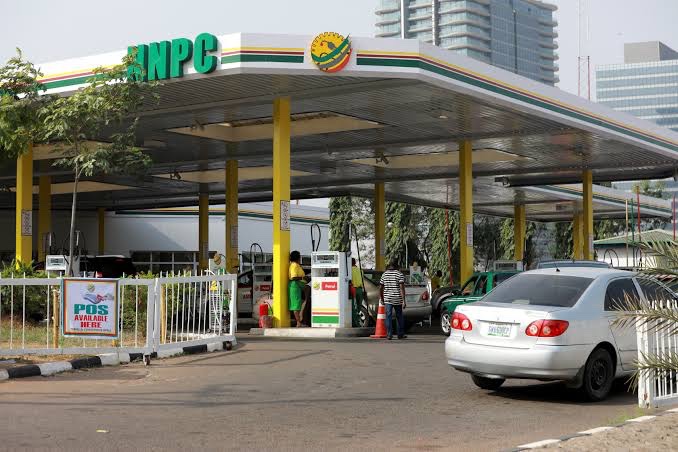Business
NNPC Reduces Petrol Price to N935 Per Litre Amid Economic Pressures

The Nigerian National Petroleum Company (NNPC) Limited has announced a reduction in the pump price of Premium Motor Spirit (PMS), commonly known as petrol, bringing the cost down to N935 per litre. This change was confirmed on Sunday, April 20, 2025, and marks a notable adjustment from previous pricing, reflecting ongoing economic strategies by the federal government to ease the burden on citizens.
The price reduction comes after weeks of speculation and public concern over the high cost of fuel, which has contributed significantly to the rising cost of transportation and goods across Nigeria. The previous price of petrol, which had remained above N1,000 per litre in several parts of the country, had been a point of contention for citizens and business owners alike.
According to sources within the NNPC, the reduction in price is part of a broader policy aimed at stabilizing fuel supply and improving affordability. While the company has not released an official statement detailing the reasons behind the change, industry experts suggest that the decision may be influenced by a combination of factors including foreign exchange fluctuations, international crude oil prices, and internal restructuring within the NNPC.
The development is expected to offer some relief to Nigerians who have been grappling with inflationary pressures and high living costs. Many transporters and market traders have repeatedly cited fuel prices as a major factor in the increase of goods and service charges, leading to growing frustration and public outcry in recent months.
Independent marketers and petrol station operators in major cities like Lagos, Abuja, and Port Harcourt have begun adjusting their prices in response to the new directive. Early reports indicate that several filling stations were seen updating their price boards to reflect the new N935 rate. However, in some remote areas, the implementation may take additional time due to logistical challenges and distribution delays.
While the reduction has been welcomed by some segments of the public, others remain cautious, expressing concerns about whether the new price is sustainable and if further increases could occur in the near future. A few analysts have pointed out that without a clear subsidy framework or alternative support measures, the fluctuation in prices may continue to affect economic stability.
There has been no official communication from the Ministry of Petroleum Resources regarding whether this price change is part of a temporary subsidy intervention or the result of changes in importation and supply costs. The federal government had previously stated that the subsidy regime had ended and that fuel pricing would be determined by market forces.
In the absence of a subsidy, any reduction in petrol price suggests either a significant drop in landing costs or a shift in government policy. Some observers have called on the NNPC to provide transparency on how the new price was determined and whether it will be maintained for a considerable period.
The recent move comes at a time when Nigeria is facing complex economic challenges, including a depreciating naira, rising inflation, and dwindling foreign reserves. The reduction in petrol price is likely aimed at cushioning the effects of these broader issues, especially as the country seeks to encourage local production and investment in the downstream petroleum sector.
It is yet to be seen how long the new price will hold and what long-term impact it will have on the Nigerian economy. Citizens and businesses alike will be watching closely in the coming days to assess whether the reduction will translate into tangible relief in transportation costs and the general cost of living. The NNPC is expected to release a detailed statement soon to clarify the implications of the price change and outline its next steps.


